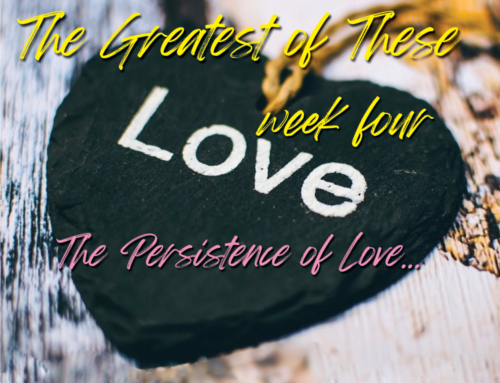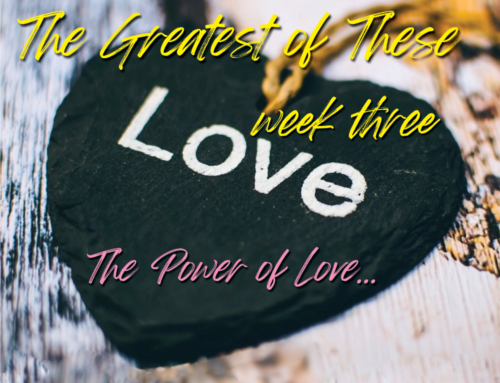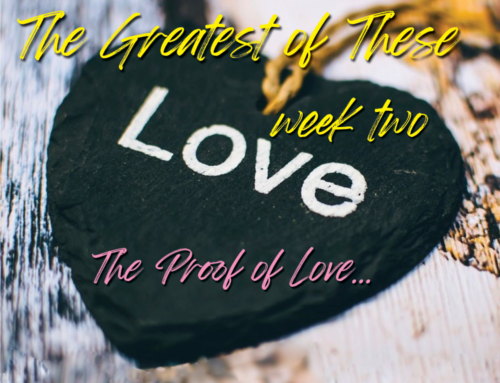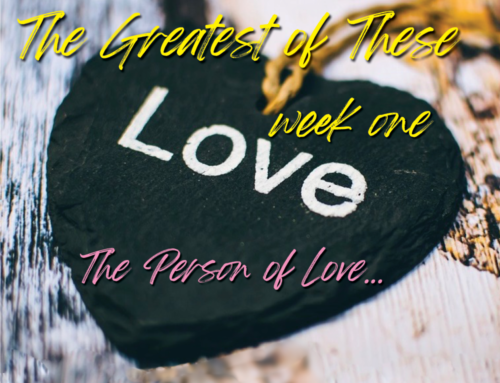If you became aware of a far better way to do whatever it is you are currently doing, would you want to know how? If adding or subtracting from your current approach to relationships, work, ministry and daily responsibilities could be greatly enhanced, would you be willing to make changes? If you were guaranteed that the knowledge of one essential godly principle would absolutely impact the quality of your life as well as those around you would you want to learn what it is?
If you answered yes to any of these questions, I encourage you to keep reading….
Hello Friends,
Happy Valentine’s Day! As this is the official day set aside on the calendar each year to honor others with sincere sentiments, loving actions and heartfelt expressions, I thought it would be most fitting and altogether appropriate to talk about the subject of love…
So what actually is love? Is it a feeling or emotion? Is it something that truly can last forever? Is it even possible that it never fails? Or is love simply a word that is up to personal interpretation? I think these are questions everyone considers and searches to answer at different seasons of life. While our individual experiences with this sensitive subject may differ providing us with varied perspectives and outlooks, I believe every person was created with the innate desire to live in loving relationships with others.
While many have set out to define, as well as redefine what love is, I believe the Bible is honestly the greatest resource on this topic. The unfailing love of God is woven throughout the entire narrative of scripture. The message of love is clearly seen in every chapter of God’s story, beginning in Genesis and ending with Revelation. It is therefore my personal and greatest conviction that the Bible is truly an epic love story detailing Yahweh’s commitment and passion for His people.
Having shared this, I’d like to zoom in on a familiar passage of scripture written by the apostle Paul and found in the thirteenth chapter of 1 Corinthians. If by chance you have never heard or read this passage of scripture, I feel confident that at some point you may have heard it included in a wedding ceremony, and/or depending on your age, you may remember it as a song recorded by Peter, Paul and Mary entitled, There Is Love. Whether this text is new to you, familiar to you, old to you or perhaps has become stale to you, I pray today you will listen intently to its message, not with your mind, but rather your heart.
“If I speak with the tongues of mankind and of angels, but do not have love, I have become a noisy gong or a clanging cymbal. If I have the gift of prophecy and know all mysteries and all knowledge, and if I have all faith so as to remove mountains, but do not have love, I am nothing. And if I give away all my possessions to charity, and if I surrender my body so that I may glory, but do not have love, it does me no good.”
“Love is patient, love is kind, it is not jealous; love does not brag, it is not arrogant. It does not act disgracefully, it does not seek its own benefit; it is not provoked, does not keep an account of a wrong suffered, it does not rejoice in unrighteousness, but rejoices with the truth; it keeps every confidence, it believes all things, hopes all things, endures all things. Love never fails….
1 Corinthians 13:1-8 NASB2020
This beautiful and poetic text that has been penned in sermons, referenced in weddings and inspired by song, is not some abstract thought or impossible reality. In all honesty, this inspired writing is actually quite practical, and if embraced has great potential to transform relationships on every level.
As I read through this scripture I see outlined, four key principles on the subject of love…
First, love is not defined by deeds alone, but more significantly love is most clearly seen through deeds that are motivated with the intention and sole purpose of demonstrating love. To make this scripture relatable, consider personalizing a summary of the first few verses of 1 Corinthians 13 below by inserting your name and an action you consider to be good.
If I [insert your name and good deed], but do not have love, it does me no good.
The message is quite clear, eloquent speech, acquired knowledge and wisdom, mountain moving faith, and abundant generosity means nothing without love.
Next the narrative moves into two descriptions of what love is: patient and kind, and three descriptions of what love is not: jealous, braggadocious or arrogant. Once again the most effective way to internalize this scripture is to make it personal. This requires vulnerability, transparency and self examination. So perhaps pause right now and consider asking yourself the following questions either silently or out loud. Am I patient with others? Am I patient with myself? Do I act with kindness? Do I brag about who I am, what I have or what I do? To make this most effective, write down your answers and reflect on your words. Be honest and gracious with yourself. In addition, consider soliciting feedback regarding these questions as they pertain to you, from others with whom you share a close relationship. This will require humility and a willingness to receive honest feedback.
The final portion of this passage of scripture ends with descriptions of what love doesn’t and does do; basically how love acts and functions. Love does not: seek its own benefit, become easily provoked, keep a short account with others, or rejoice about injustice. Love does however: rejoice when truth wins out. Keeps every confidence, believes all things, hopes all things, and endures all things. This kind of love, the one described in this narrative, is the highest category of love, also known as agape love. It is a perfect, unfailing and matchless love. It is the love that originated with and comes from God, and it is a love that never fails.
I find this beautiful narrative to be both incredibly inspiring, and also overwhelmingly challenging as I recognize how grossly far I fall from the mark of living and giving this kind of love. But then I remember that the scripture wasn’t written to discourage or dishearten but rather to empower me. Will I always get it right? Will I ever get it perfect? Will I make mistakes along the way? No, no and yes. But the point is not to master love, as if we ever could, but rather to commit to love, work at love, and persistently and consistently pursue love.
To wrap this loving discussion up, I’d like to go back to where we started when I asked you a series of questions regarding the opportunity to do everything in a far better way. Although the questions originated with me, the phrase, far better way, was borrowed from the apostle Paul’s cliff-hanging statement for the conclusion of First Corinthians Chapter 12. This phrase is an absolute golden segue into Paul’s beautiful description of love, as outlined in Chapter 13. As I reflect upon this, I can honestly say that I have never heard anyone share regret in regards to choosing love, but I have heard countless stories of individuals wishing they could go back in time and make the commitment to intentionally, purposefully and selflessly demonstrate love. The commitment to love others is not always the path of least resistance. The truth is loving others is costly as it requires a personal investment of all that you have, and it is also risky as there are no guarantees of love returned. Sincerely loving others isn’t necessarily, if ever, the easy way, the quickest way, the certain way, nor is it the way without pain, problems or trials. But it is the most full-filling way, the most rewarding way, the blessed way, and yes it is the far better way.
God bless you friends,
Enjoy your day
You are loved!
Carol





